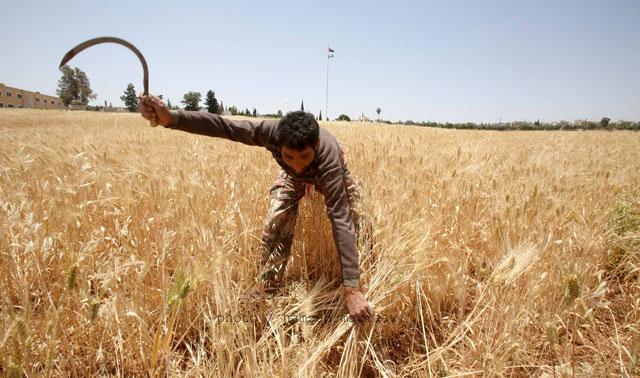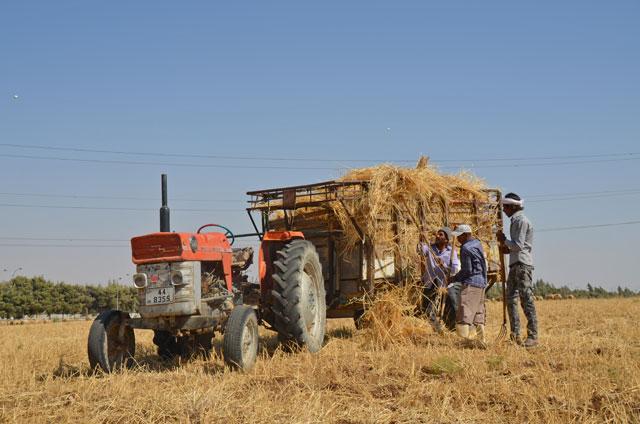You are here
Jordan to purchase 100,000 tonnes of wheat to boost strategic reserves
By Omar Obeidat - Jul 28,2015 - Last updated at Jul 28,2015
AMMAN – The government floated a tender this week to purchase 100,000 tonnes of wheat to boost its strategic reserves amid rising consumption caused by the influx of Syrian refugees, a government official told The Jordan Times Tuesday.
Industry, Trade and Supply Ministry Spokesperson Yanal Barmawi said the ministry floated five tenders in the first half of this year, importing around 450,000 tonnes of wheat valued at more than $105 million.
Wheat reserves currently stand at 778,000 tonnes, which cover over nine months, he said.
Between January and June, the ministry floated three tenders to import 300,000 tonnes of barley valued at around $65 million, Barmawi added, indicating that reserves of the grain are around 525,000 tonnes, covering over seven months.
“We have a programmed plan for grain purchases to keep strategic reserves at secure and comfortable levels,” the official said.
Barmawi noted that the annual consumption of wheat went up from 750,000 tonnes prior to the Syrian crisis, which erupted in 2011, to over one million tonnes over the past four years.
He also cited the increasing numbers of Arab tourists in the summer as a reason for the rise in consumption.
Official figures estimate that over 1.4 million Syrians reside in the Kingdom.
Around 10 million people live in the Kingdom, 6.6 million of whom are Jordanians, according to official estimates.
The ministry spokesperson expected domestic consumption of wheat and barley to continue to go up in the coming years.
Last year, Jordan imported over one million tonnes of wheat at a cost of more $294 million, and imported 750,000 tonnes of barley at a cost of around $193 million, Barmawi said.
The government has been studying the option of removing the subsidy on flour used for bread, but the plan has been hit by public rejection.
Jordanians and non-Jordanians residing in the country benefit from the government’s flour subsidy.
Officials say one kilogramme of bread is sold at JD0.160, while the actual cost on the Treasury is JD0.450 per kilo.
The government sells flour to bakeries at JD36 per tonne while its real cost is around JD305 per tonne.
Official estimates put the overall value of the flour subsidy at around JD260 million per year.
Jordan imports over 96 per cent of its wheat needs as domestic production covers only around 4 per cent of demand.
Related Articles
AMMAN — Minister of Industry, Trade and Supply Maha Ali said on Saturday that when there is a significant drop in grain prices on the global
Jordan imported over 2.1 million tonnes of wheat and barley in 2014, valued at around JD437 million, to cater to rising domestic consumption demand, Trade Ministry Spokesperson Yanal Barmawi said Monday.
AMMAN — Jordan on Thursday announced tenders to buy 240,000 metric tonnes of wheat and barley amidst rising demand, an official said on Thur













